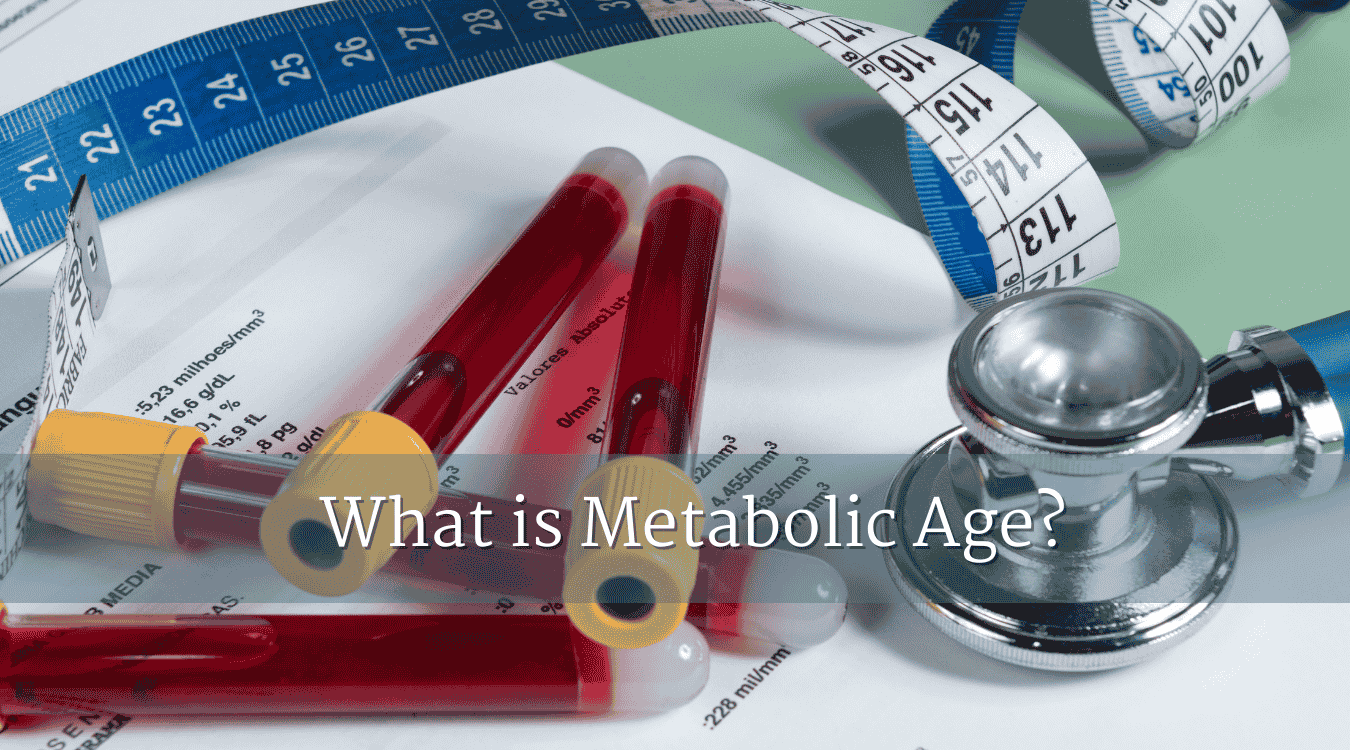
What Is Metabolic Age? Unlock the Secret to Feeling Younger and Healthier
Do you ever feel older than your age? Or maybe you’re fitter and healthier than most people your age? That’s where your metabolic age comes in—it’s a measure of how well your body is functioning compared to others. Understanding your metabolic age isn’t just about numbers; it’s about unlocking the secrets to better health, increased energy, and a longer, more vibrant life.
In this guide, we’ll explore what metabolic age is, why it matters, how it’s calculated, and most importantly, how you can improve it.
What Is Metabolic Age and Why Does It Matter?
Metabolic age is a health metric that compares how your body functions to others of varying ages. Unlike your chronological age, which reflects how many years you’ve lived, metabolic age focuses on how efficiently your body is operating.
How Is It Calculated?
Metabolic age is determined using your basal metabolic rate (BMR), the number of calories your body needs to function at rest. Factors like body composition (muscle vs fat), cardiovascular fitness, and overall health influence your metabolic age.
For example, if your metabolic age is younger than your chronological age, it suggests your body is in excellent condition. However, if it’s higher, it could indicate areas for improvement, such as low muscle mass, poor diet, or limited physical activity.
Why Is It Important?
Your metabolic age provides insights into:
- Health Efficiency: A lower metabolic age means better metabolism, muscle mass, and energy levels.
- Warning Signals: A higher metabolic age could point to potential health risks, such as obesity, diabetes, or cardiovascular issues.
- Motivation for Change: It’s a tangible way to track progress as you adopt healthier habits.
How to Measure Your Metabolic Age
Metabolic age is calculated using advanced tools like bioelectrical impedance analysis (BIA) scales, commonly available at gyms or health clinics. These scales measure:
- Body Fat Percentage: Higher fat levels typically increase metabolic age.
- Muscle Mass: More muscle means a higher metabolism and lower metabolic age.
- Visceral Fat: Fat around your organs significantly impacts your health and metabolic efficiency.
Factors That Affect Your Metabolic Age
- Diet: Processed foods and sugary diets can slow your metabolism and increase metabolic age.
- Exercise: A sedentary lifestyle lowers muscle mass, raising your metabolic age.
- Stress: Chronic stress elevates cortisol levels, slowing metabolism and promoting fat storage.
- Sleep: Poor sleep disrupts hormones that regulate appetite and metabolism.
- Hydration: Dehydration can slow down metabolic processes, making your body less efficient.
How to Improve Your Metabolic Age in 5 Steps
1. Prioritise Strength Training
Muscle mass is a game-changer for metabolism. Regular resistance training (2–3 times per week) helps build muscle and burn more calories at rest, lowering your metabolic age over time.
2. Focus on a Balanced Diet
Fuel your body with whole, nutrient-dense foods:
- Proteins: Lean meats, fish, eggs, tofu, and legumes to support muscle repair and growth.
- Healthy Fats: Avocado, olive oil, nuts, and seeds to stabilise energy levels.
- Complex Carbs: Quinoa, sweet potatoes, and whole grains for sustained energy.
3. Stay Active Throughout the Day
Beyond workouts, incorporate movement into your daily routine. Walk, take the stairs, or do quick stretches to keep your metabolism active.
4. Get 7–9 Hours of Quality Sleep
Sleep impacts everything from energy levels to hormonal balance. Aim for consistent, uninterrupted sleep to allow your body to recover and reset.
5. Manage Stress Levels
Practice stress-relief techniques like deep breathing, yoga, or mindfulness. Chronic stress not only raises cortisol but also makes it harder to maintain a healthy metabolism.
A Real-Life Example: What Metabolic Age Means
Imagine you’re 40 years old, but your metabolic age is 30. This means your body is functioning as efficiently as someone a decade younger—offering better energy, vitality, and fitness.
On the flip side, if your metabolic age is 50, it’s a sign that your body is underperforming, possibly due to poor lifestyle habits or an imbalance in muscle and fat. The good news? With consistent changes, your metabolic age can improve significantly over time.
FAQs About Metabolic Age
1. Can metabolic age be lower than your chronological age?
Absolutely! A lower metabolic age reflects good health, high muscle mass, and an efficient metabolism.
2. How long does it take to improve metabolic age?
Most people see noticeable improvements within 3–6 months of adopting healthier habits.
3. Are metabolic age scales accurate?
While they provide a useful estimate, metabolic age scales should be seen as a guideline rather than an exact measurement.
4. Is metabolic age the same as biological age?
No, metabolic age focuses on metabolic efficiency, while biological age reflects cellular aging.
Why Improving Your Metabolic Age Matters
Understanding your metabolic age is more than just a number; it’s a reflection of your body’s health and efficiency. By focusing on muscle growth, balanced nutrition, and overall wellness, you can turn back the clock and feel younger than ever.
So, what’s your metabolic age? Take control today, adopt healthier habits, and unlock the secret to a fitter, healthier, and younger-feeling you.



